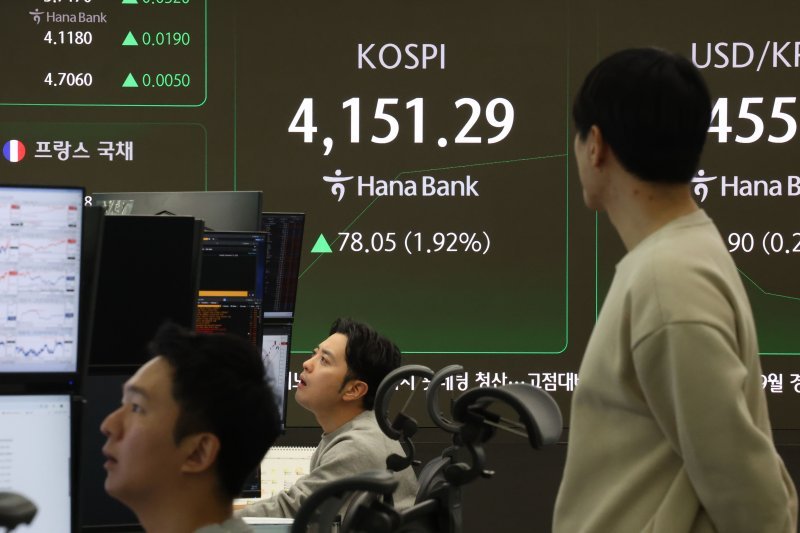[fn Editorial] Surge of 1.2 Trillion Won in Credit Loans Driven by 'Debt-Fueled Investment' Encouragement
- Input
- 2025-11-11 18:27:24
- Updated
- 2025-11-11 18:27:24

Although not the sole reason, the recent spike in credit loans was likely influenced by remarks from Kwon Dae-young, Vice Chairman of the Financial Services Commission (FSC).
On a radio program on the 4th, Vice Chairman Kwon commented on debt-fueled stock investment, saying, 'We have viewed it too negatively, but it is a form of leverage.' It is only natural that he faced criticism for seemingly encouraging risky investments with borrowed money as a financial regulator.
With the recent stock market boom, a stock investment frenzy reminiscent of the early 2000s is sweeping the public. During such bullish periods, more investors may see profits. As even ordinary citizens who feel left out jump into the market, speculative investment trends are intensifying.
Financial investment, including stocks, is not objectionable as a means of asset management if done prudently and soundly. However, it is inappropriate for financial authorities to encourage investment at a time when the index has surged. Especially since the suggestion was to invest with borrowed money, even though he later apologized at the National Assembly of the Republic of Korea, such remarks are highly improper for a public official.
The result has been a sharp increase in credit loans. Most people who have taken out these loans have likely already invested in stocks. With the KOSPI fluctuating after surpassing 4,200, this is a time when individual investors should exercise particular caution. Buying impulsively in this zone carries a high risk of losses.
A significant portion of Korea's individual investors lack sufficient financial investment knowledge. Many are so-called 'blind' investors who do not trade based on thorough analysis.
Such individuals are more likely to misread market trends and make reckless investment decisions. If someone bought stocks after hearing Vice Chairman Kwon's remarks and suffered losses, who would take responsibility?
Public officials must be as cautious as if testing every stone before crossing a river. This is especially true for those who formulate financial policy, who must weigh every word carefully. While a comment may seem trivial to the speaker, its impact on the market and investors can be significant. Moreover, with soaring housing prices, household debt is approaching 2,000 trillion won. While a reasonable level of debt can benefit households or businesses, excessive household debt is a burden not only for families but also for the nation.
Korea's stock market is no longer undervalued. Foreign investors have already taken profits and are leaving. Individual investors are buying the stocks sold by foreigners. While further gains would be welcome, if the market turns, individuals could be left holding the bag in the final phase of the rally. Individual investors must exercise extreme caution.